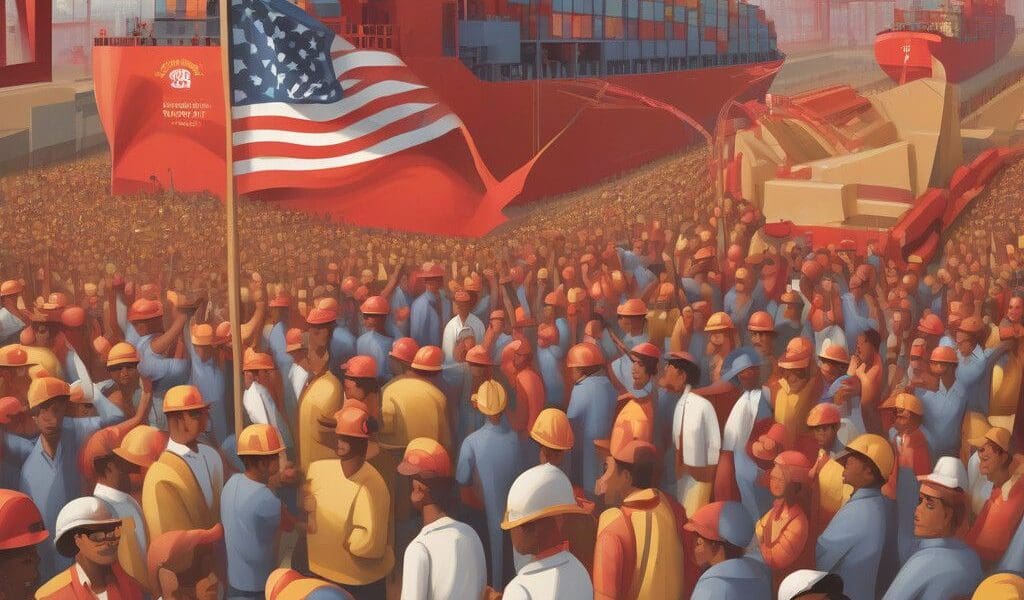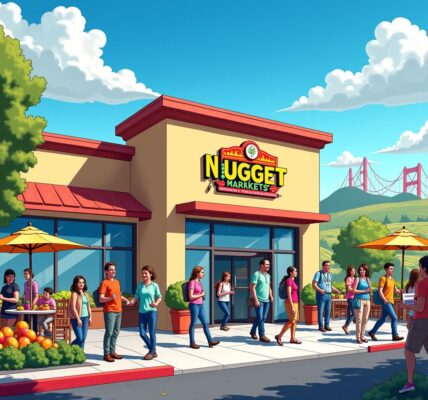The current landscape of labor relations reflects a significant shift within U.S. supply chains, particularly in light of the ongoing International Longshoremen’s Association (ILA) strike. Labor actions, including recent unionization efforts at Amazon facilities, are highlighting the growing dissatisfaction among workers in various sectors, signaling a potential transformation in how labor rights are addressed across the country.
This week, over 100 Amazon workers at a San Francisco warehouse took a monumental step by forming a union with the International Brotherhood of Teamsters. This move marks the first instance where Amazon warehouse employees have sought union recognition outside of the National Labor Relations Board (NLRB) election process. Worker Dori Goldberg emphasized the collective effort: “We’re sending a clear message to Amazon that we will not back down. We will continue to fight for what we deserve.” Their demands center around essential issues such as wage increases and safe working conditions, indicative of a wider trend where workers are increasingly seeking a voice and fair treatment on the job.
This Amazon initiative is part of a broader movement within the company’s workforce. Recently, Amazon drivers in Queens, New York, also united under the Teamsters, demanding contract recognition. This trend reflects a mounting pressure on corporations to acknowledge and address the rights and needs of their employees.
Meanwhile, on the manufacturing side, Teamsters Local 238 workers at a Cargill corn milling facility in Cedar Rapids, Iowa, are striking following unsuccessful negotiations over wages deemed insufficient to address recruitment and retention challenges. Business agent Scott Punteney asserted, “Cargill can end this strike immediately by stepping up, respecting its workers, and giving them the dignity and fair compensation they’ve earned.” The company, for its part, has maintained that it offered competitive packages, although this stance has not yet placated the striking workers.
As these labor actions unfold, the ongoing Longshoremen’s strike significantly impacts port operations across the United States, with repercussions expected to extend into the grocery supply chain. Approximately 75% of U.S. imports transit through East or Gulf Coast ports. Jason Miller, a professor of supply chain management at Michigan State University, pointed out that alternatives to these ports are limited, particularly for perishables like bananas, which cannot be economically transported via air due to their low value per weight.
Retailers are keenly aware of the potential supply chain disruptions. Costco has been preparing for the strike’s impact, as mentioned by Ron Vachris, the company’s President and CEO. He stated, “The port strike is something we’ve been watching very closely for some time.” Moreover, retailers like Texas-based H-E-B are assuring customers of their preparedness against potential supply chain disruptions, stating that they have been collaborating with suppliers and do not anticipate significant impacts from the strike.
The federal government is monitoring the situation closely, advocating for the ILA and the United States Maritime Alliance (USMX) to resume negotiations. Acting Secretary of Labor Julie Su emphasized the importance of recognizing the contributions of port workers, stating, “These workers will help communities recover from the devastating effects of Hurricane Helene.” In a political landscape where corporate profits are soaring, the government’s call for fair contracts reflects a critical juncture for labor relations in America.
The emphasis on labor rights and the recent surge in unionization efforts indicate that workers across various sectors are standing firm in their demands. The persistence of this momentum may play a crucial role in reshaping labor relations. As pressure builds, experts like Miller believe that the Biden administration may be more inclined to take action, especially if production halts in domestic manufacturing plants due to the inability to secure necessary components through imports.
The recent labor actions across the supply chain highlight not only the need for better working conditions but also underscore a growing trend among workers to advocate for their rights. This evolution in labor dynamics poses fundamental questions about the future of work in America and the responsibilities of corporations in addressing these issues head-on.












